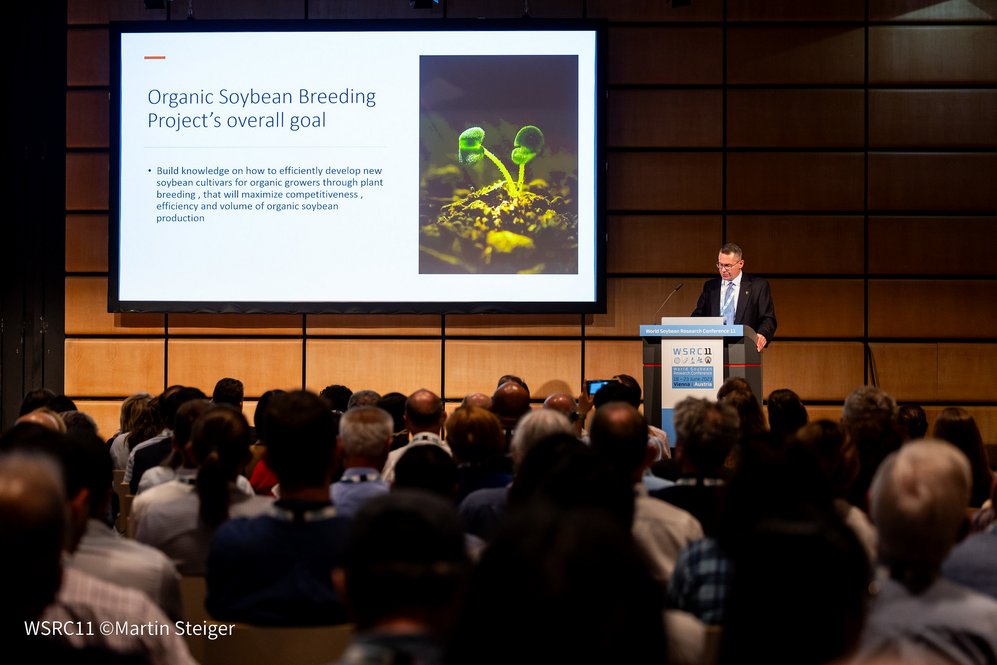Donau Soja hosted the 11th World Soybean Research Conference (WSRC) in June in Vienna, to explore the role of the soybean as food and feed in times of global climate crisis and the need for a “protein transition” in Europe. The week-long event brought together over 700 participants from 51 countries to discuss, debate and be informed about the latest scientific and agricultural research relating to soybean cultivation.
Soybean – problem or solution?
The soybean is a vital protein and oilseed crop and humans have become reliant on it ever since the western made a big shift in our diets towards more meat and dairy. This has led to large increases in livestock production and therefore soy cultivation – with almost 80% of soybeans grown today destined for animal feed. It also means that the soybean now has a reputation for greenhouse gas emissions, deforestation and biodiversity- loss associated with the massive increase in production and the land need for this. Exploring how to make a shift from the soybean as a problem, to a solution, was a key focus of the WSRC.
Sustainable food systems with the soybean at their centre
For Donau Soja, whose work is entirely focused on ensuring sustainable soybean cultivation in Europe and for Europe, this conference was a vital forum for sharing the latest developments and research from farmers, scientists and other experts. It received more than 500 scientific contributions, from leading scientists from all major soybean producing countries including China, the United States, Argentina, Canada, Brazil, India, Ukraine, France, Serbia, Japan and South Korea, who joined the WSRC to share and discuss the latest results.
Some key areas for focus for the soybean community, which emerged at the conference, were:
- That agricultural research is urgently needed to mitigate the negative effects of climate change and to minimise the impact of soybean on the environment towards a fully sustainable soybean production in the near future.
- There should be a reduction of production inputs through improvement of agronomic and genetic input efficiency, new pathways in livestock feed uses, and finally an enhanced direct use of soybeans in human food.
Matthias Krön of Donau Soja emphasised the conference’s international significance: “Soya is the world’s most important source of protein, both for direct food production and animal feed. How this wonderful plant is grown, processed, traded, and used plays a major role in the future of humanity. A sustainable future, without hunger, overexploitation, and biodiversity loss, while building and maintaining regional supply chains, is a major global challenge. The World Soybean Research Conference was the perfect opportunity to explore solutions to this challenge alongside scientists, producers, processors, and NGOs from all over the world. The strong message from the conference is that soya can become a global force for good.”
Find more information about the WSRC conference here: www.wsrc11vienna.com
